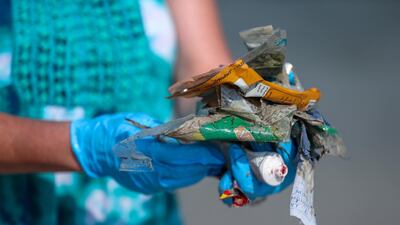As the ancient proverb goes, you can lead a horse to water but you cannot make it drink – a well-worn saying that’s perfectly applicable in describing human behaviour. Sometimes, despite knowing what’s best for us and others, we just won’t change our habits because, well, you know, we’ve always done it this way. In fact, we often only change our behaviour if not doing so is going to hurt us, particularly in the pocket.
When wholesale recycling of industrial and domestic waste was in its early stages in Europe, some countries took to it more quickly than others. The most successful local government authorities, working to meet an EU-imposed target of recycling a minimum of 50 per cent (by weight) of household waste by 2020, have made it mandatory for residents to sort their refuse before it’s collected. Anyone found to not be doing their bit can expect a hefty monetary fine – something that’s resulted in recycling becoming second nature to residents and businesses in certain countries.
Using social media as a call to action
Without or without the threat of legal action, it’s time for us in the UAE to change our ways en masse. And progress is being made. For all their various ills, social media platforms are excellent tools for issuing “calls to action” about any number of matters. As videos are shared, depicting truly shocking scenes of whales killed by ingesting plastic bags, shorelines completely covered in refuse or turtles trapped by illegally discarded fishing nets, we’ve started to think about how our throwaway society is killing the oceans.
Moves are afoot to clean up the seas and beaches with technology and good old-fashioned elbow grease. But as the global population of the planet’s worst enemy (that would be us) is set to explode over the next three decades, it’s obvious that the entire human race needs to drastically alter its behaviour.
Natalie Banks, manager of Dubai-based marine conservation NGO Azraq, believes the key to changing human behaviour patterns is educating our children. "They're the ones who will be impacting the planet in the coming decades," she says, "and we have the opportunity to influence the ways they will think and act for years to come. From our dealings with the schools here, I can tell you there is a lot of excitement around this subject and they're determined to do the right thing. At Gems Modern, they run a marine conservation programme that starts when the children are in kindergarten – that kind of proactive approach is brilliant and really does work."
Cleaning up the beaches in the UAE
Azraq is hosting its first Dubai beach clean-up on September 15, which happens to be World Clean Up Day – a movement that started a decade ago in Estonia and now has more than 150 countries involved, with millions of volunteers literally spending a day cleaning roads, parks, beaches, rivers and forests. “After that, we’re aiming to do at least one a month,” Banks advises. “When we’ve done them in Ras Al Khaimah, we’ve had between 200 and 300 people turn up – it’s been incredible and we’re wanting to do the same again in Dubai. But long-term, the goal with these operations is to change behavioural patterns, getting plastic out of people’s lives for good, so the pollution won’t appear in the first place.”
_________________
Read more:
Plastic pollution: we’ve poisoned the sea, now it’s coming for us
The unsettling facts about plastic pollution
Why the plastic water bottle is public enemy number one
Marine patrols to intensify following dead dugong discovery on Abu Dhabi coast
_________________
The collected waste is separated into what Banks says is almost always 10 common items washed up on the country’s beaches, after which it is taken away for processing and, where possible, recycling by municipality contractors. She freely admits that there is still a long way to go before recycling becomes the default way for residents here to dispose of their used and unwanted items, but that the message is steadily getting through to people. “Even Carrefour promoting the use of reusable shopping bags is a really big deal in educating people who might otherwise be difficult to reach.”
Abu Dhabi, Banks points out, has a much more established culture of effective waste management. “There has been a greater focus in Abu Dhabi because of the precious mangrove areas and the dugongs [one of the capital’s most vulnerable marine species], but other areas are now beginning to follow suit.”
Going back to social media, it’s playing an important role in galvanising the resolve of UAE residents to take better care of the environment. For instance, Facebook group Plastic Free UAE has only been in existence for a few weeks and, at the time of writing, already has 1,900 members, all swapping stories about reducing plastic use, offering advice about campaigns, recycling issues and marine conservation – it’s a vibrant, active online community that exists for the benefit of everyone and everything.
There’s a palpable shift happening here and it feels good to be a part of it.


